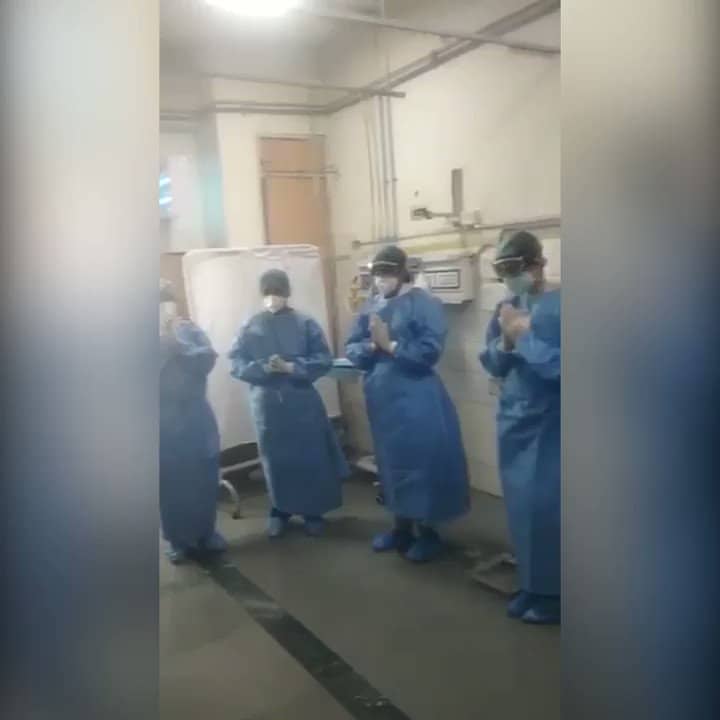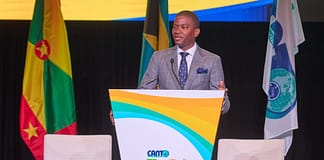
A deadly surge in COVID-19 cases is placing an enormous strain on health and critical care facilities in India. This second wave of the pandemic is larger and spreading more rapidly than the first, and is leaving vulnerable families paying a particularly steep price.
“Urgent action is needed to avert further tragic loss of life.”
UNICEF has already sent critical lifesaving supplies to help India in its battle with COVID-19 and has deployed senior-level experts to the worst hit areas to support state and local authorities. But more support is urgently needed to save lives.
UNICEF is continuing to work with partners to:
- Increase access to life-saving oxygen by procuring and installing oxygen generation plants in hospitals to treat severe and critical COVID-19 cases
- Provide rapid, accurate testing machines in some of the most affected districts
- Support communities and essential workers to weather this storm and prevent further disruption to outreach programmes and services for children.
Join UNICEF to support lifesaving supplies and services to protect families and communities in India
UNICEF’s support
UNICEF and partners are doing everything they can to keep children and their families safe and healthy. UNICEF has provided oxygen supplies and other critically needed emergency equipment to support the immediate response, while also supporting resilience-building against recurrent shocks and stresses to the health system that leave children and their families at risk.
UNICEF/UNI370575/VishwanathanA shipment of oxygen concentrators pictured in Delhi in September 2020. As cases of COVID-19 continue to rise, there is a rapidly growing need for more essential medical equipment such as ventilators and oxygen concentrators.
Along with the oxygen concentrators, UNICEF has supplied COVID-19 testing machines, which form a crucial part of the response to the pandemic. UNICEF is also supporting the procurement and installation of 25 oxygen plants for hospitals in the northeast and in Maharashtra.
UNICEF/UN0454386/India Country OfficeA doctor uses an RT-PCR COVID-19 testing machine donated by UNICEF and partners in Raipur, Chhattisgarh. The machine will help ramp up testing in the state.
UNICEF and partners are continuing to support the Government of India in the acceleration of its national vaccine rollout to equitably reach all population groups.
UNICEF/UN0454500/BoroA health worker prepares a dose of the Covid-19 vaccine at a dispensary in Guwahati on 29 April, 2021.
Vials of the COVID-19 vaccine have to be carefully packed at cold temperatures to ensure they remain effective when administered, part of the so-called cold chain – a series of precisely coordinated events in temperature-controlled environments to store, manage and transport these life-saving products. UNICEF and partners have procured special refrigerators as part of cold chain strengthening and COVID-19 vaccine introduction in India.
UNICEF/UN0430897/Altaf AhmadHospital staff store COVID-19 vaccines in refrigerators supplied by UNICEF at a hospital in Ghaziabad, Uttar Pradesh.
While providing urgent support to the healthcare system, UNICEF has also been assisting the Government of India in ensuring critical services for the most vulnerable children continue functioning. For example, UNICEF is providing technical support to the government and partners to help ensure that 12.3 million children across 17 states are able to continue learning from home.
UNICEF/UN0389130/PanjwaniA girl studies at her home in Barmer in Rajasthan in northern India.
Since the start of the pandemic, UNICEF has been working with partners in India to help stop the spread of COVID-19, sharing information with more than 660 million people on how to stay safe from the coronavirus. UNICEF has consistently worked to counter misinformation and promote COVID-19 appropriate behaviours, including wearing masks, physical distancing, and handwashing. New multimedia content is produced weekly in multiple languages for broadcast on digital channels and media, especially at the state level.
UNICEF/UNI340981/PanjwaniA woman shows a child proper handwashing technique to prevent the spread of COVID-19 in Gujarat.
UNICEF needs $21 million for the urgent delivery of additional testing equipment, supplies and oxygen products in India, and more than $50 million for lifesaving COVID-19 interventions across sectors.
Advertise with the mоѕt vіѕіtеd nеwѕ ѕіtе іn Antigua!
We offer fully customizable and flexible digital marketing packages.
Contact us at [email protected]

















For those who can, kindly donate. Let’s continue to stand arm in arm like brothers and sisters against this pandemic. Thank you India for sharing the vaccine with us!
I certainly agree…. We need to stand in solidarity with them and extend our gratitude to them for the kind gesture that they have extended to our beautiful nation….. let us not forget that the vaccine is not the only gift they have given to us…. During the 70’s & 80’s Holberton hospital was filled with Indian doctors…. Several years later they offered us scholarships especially in areas such Information Technology. So our gratitude definitely need to be returned!!!
Comments are closed.